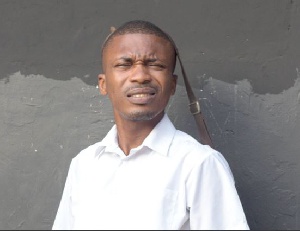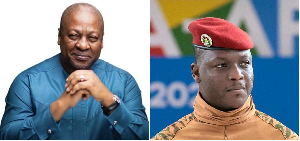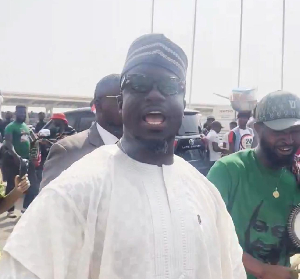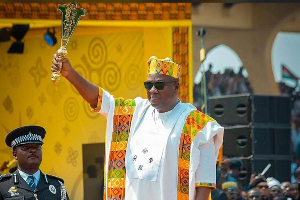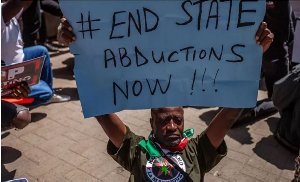Popular Comedian and Actor Clement Ashiteye known in showbiz as Clemento Suarez, has said with sadness that Mr Kojo Yankah has still not paid him after he played a role in the play “The Trial of JJ Rawlings”.
In an interview with US-based “Loud Silence Radio & TV Network” on Wednesday November 20, 2019, Clemento Suarez told host Kevin Ekow Baidoo Taylor that about eleven months after playing a role in "The Trial of JJ Rawlings," he is yet to be paid.
He said, on December 31, 2018, he had to forgo his Watch Night Service to perform in the trial of JJ Rawlings which was part of the launch of a book Mr Kojo Yankah had authored about former President Jerry John Rawlings.
“On December 31, 2018, we did one show and the weekend after we did about six shows and up till now, we have not received our wages for that performance. If now that he has paid, I can’t tell but what I say on authority is that Mr Kojo Yankah did not pay me after the show,” he explained.
Spelling the name, Kojo Yankah, to emphases his point, Clemento Suarez said it is only God who has kept him up till this time.
“It’s only God ooo…nothing I get, it is God otherwise since he [Kojo Yankah] hasn’t paid me what will I eat,” he rhetorically said.
“Kojo Yankah hasn’t paid me…this is the scandal today,” the comedian stressed.
According to Clemento Suarez, he has not been able to call the former minister of State since the production ended because he doesn’t have his [Kojo Yankah] contact.
“The Trial of JJ Rawlings” was a book authored by Kojo Yankah, a former Minister of State under the erstwhile Jerry John Rawlings’ administration.
The book captured the role the ex-military officer played in the political history of Ghana which led to the June 4, 1979 "uprising".
The book according to Mr Rawlings has helped to confront the negative efforts of some governments, institutions and personalities in degrading and misrepresenting a very important part of Ghana’s history, “to the point of even sneaking some of the disinformation into school textbooks.”
Entertainment of Friday, 29 November 2019
Source: www.ghanaweb.com





